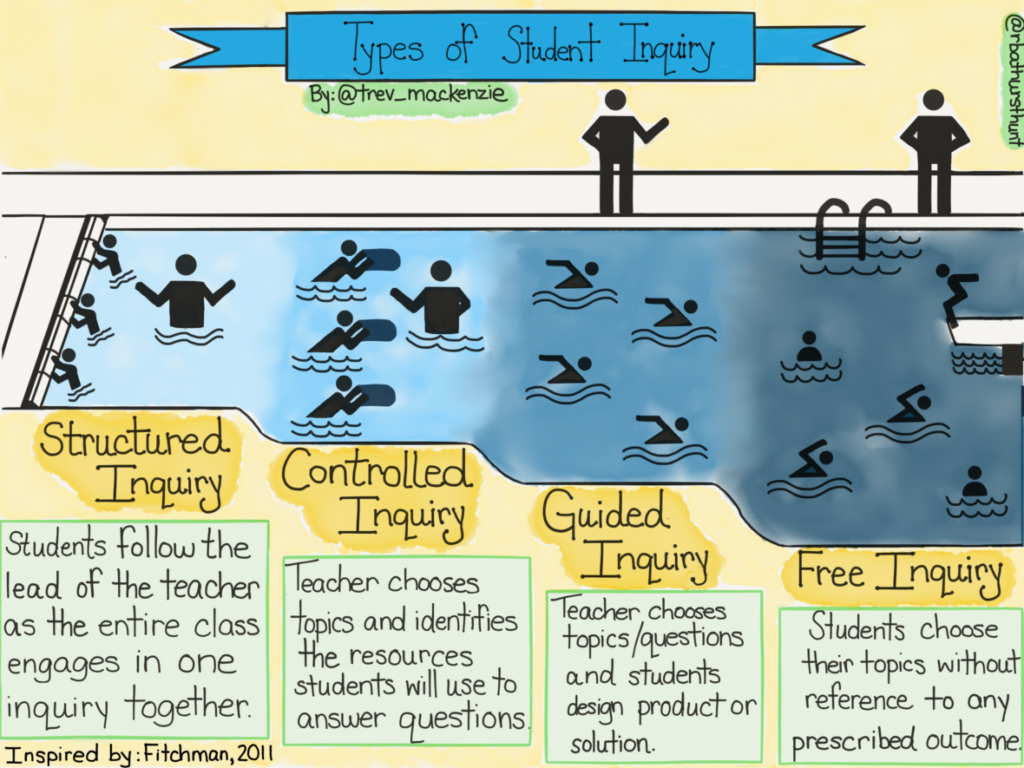
Guess speaker Trevor MacKenzie uses an inquiry approach in his classroom, which he finds to be very beneficial with his students. By adopting an inquiry approach in the classroom and allowing students to explore a topic they are passionate about, Mackenzie discovered that students are more engaged, attendance and work ethic improves, skills are acquired, and students collaborate with increased energy. The key to inquiry-based learning and teaching is not to throw students (and teachers) into the deep end to start. The types of student inquiry is a scaffolded approach to inquiry, meaning start small and work your way up. Gradually increase student agency while providing them with the necessary tools to succeed with their own inquiry. MacKenzie emphasized that inquiry is most successful when you begin in a structured inquiry model, transition into a controlled inquiry, then into a guided inquiry, and finally into a free inquiry. I think this too is the best approach, as it gives the time for students and teachers to learn the process. Studies show that inquiry-based learning leads to long-term retention, improved critical thinking skills, and higher academic achievement. It is the future of learning, and I am very excited to be entering into the field at this pivotal moment in education.
Leave a Reply
You must be logged in to post a comment.